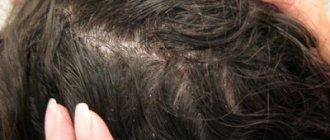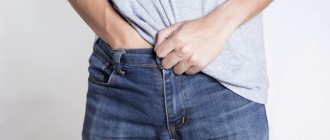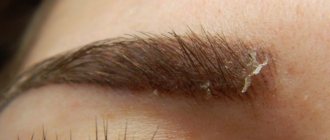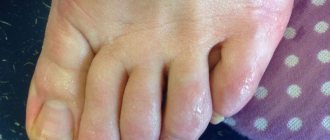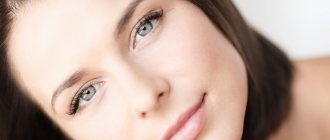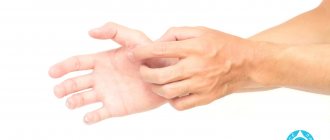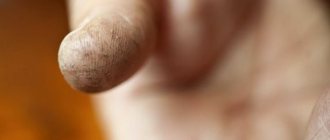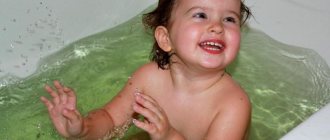Peeling skin: causes and solutions to the problem
Peeling of the skin: causes and solutions to the problem
Peeling of the skin causes many unpleasant moments. To effectively combat this phenomenon, you need to accurately determine its cause.
skin care, skin peeling, dermatitis, hypovitaminosis and vitamin deficiency, menopause, ichthyosis
Peeling usually occurs suddenly. The skin begins to dry out, becomes rough to the touch, and in severe cases, the keratinized scales of the epidermis literally “fly off” from the patient. Of course, this cannot but cause discomfort. A person tries to solve the problem as soon as possible, for which he uses moisturizing and softening creams. Sometimes this helps, but often the causes of peeling skin lie much deeper. For effective treatment, it is necessary to determine possible changes in the body that led to a similar problem. Only in this case will the doctor be able to eliminate it.
Why does the skin on a man's face peel?
Peeling facial skin is a common sign of internal diseases or adverse environmental influences. Sometimes dryness is accompanied by a change in skin color, itching, and hyperemia.
To find out why a man has an unpleasant symptom, first of all, rule out external causes:
- hard water;
- frequent shaving, rarely changing the razor or the blade on it;
- use of low-quality or unsuitable skin care cosmetics;
- unfavorable climatic conditions, street dust, cold, hot air;
- dry air from the air conditioner;
- frequent exposure to sunlight, lack of ultraviolet protection.
The main internal causes of dry, flaky facial skin in men include:
- poor nutrition, addiction to fatty, sweet, flour, smoked foods;
- lack of vitamin B;
- hereditary disease of the dermis (ichthyosis);
- allergic reaction to food, cosmetics, soap, water;
- lack of proper rest, sleep disturbance, stress;
- bad habits;
- infectious, viral or fungal infection;
- pathologies of internal organs.
Important! Peeling may be associated with the presence of serious skin diseases: dermatitis, demodicosis, mycosis, eczema, psoriasis, seborrhea. Therefore, if itching, redness, crusts, or inflamed spots appear, you should immediately consult a dermatologist.
Dryness often occurs in overweight people who have high blood sugar levels. If peeling occurs only under the nose, it may be due to allergies, colds, or herpesvirus.
Dry skin
One of the most common causes of dry skin is a simple lack of moisture. Dry skin can be inherited. In this case, a deficiency of the skin fat layer – lipids – is inherited. Such skin is unable to retain moisture, so it needs special care to restore lipid balance.
But more often, dry skin is an acquired phenomenon. It is facilitated by the modern rhythm of life, the use of too harsh cleansers, the abuse of alcohol lotions, and weather conditions (cold wind, snow, sun). As a result, the skin begins to suffer from dehydration and peel. To correct this condition, it is enough to eliminate the provoking factors and focus on moisturizers and emollients. Applying sunscreen lotion in summer and protective cream in winter will help protect your skin from the negative effects of weather and prevent dryness.
If the skin of your feet is peeling, then in some cases it is enough to treat your feet with a scrub and lubricate them with a nourishing cream. This simple procedure, done just once a week, will keep your foot skin in flawless condition.
How to get rid of flaky scalp
Treatment for scalp peeling should be prescribed by a doctor (dermatologist or trichologist). But even the use of medications will not guarantee that the problem will go away. In addition, effective folk remedies do not always help. It is worthwhile to treat peeling of the dermis of the head in a comprehensive manner; this is the only way to achieve the expected result relatively quickly.
- Generic Cialis
- How to maintain healthy blood vessels after 50 years
- The state plans to recheck pensioners with disabilities
Healthy and balanced diet
What to do if your scalp is flaky? The first step on the path to recovery is a balanced diet. People suffering from dandruff should exclude fried, spicy, salty, fatty foods from their diet and give up alcoholic beverages. If your scalp is peeling, you should reduce the amount of simple carbohydrates you consume, found in sweets and flour products. It is worth increasing the consumption of fresh fruits, vegetables, dairy and dairy products. In addition, it would not hurt to drink a multivitamin complex containing copper, zinc, calcium, vitamins A, B, C, E.
Use of antifungal shampoos
Damage to the scalp is a common phenomenon. Peeling often forms during cold seasons against the background of a suppressed immune system, when saprophytes (pathogenic fungi) are activated in the body. At the initial stage, treatment is limited to the use of antifungal shampoos, which quickly deal with the causative agent of flaking. Special shampoos contain active ingredients that stop the proliferation of dangerous microflora, prevent hair loss and infection of the deep layers of the skin.
Drug treatment
- "Sulsena". The remedy is available in the form of oil, paste and shampoo. The paste has the maximum effect. A two percent product is used for medicinal purposes twice a week, a one percent paste is used with the same frequency for prevention. Before use, wash your hair with shampoo and then rub a sufficient amount of paste into your scalp. After 10 minutes, the product is washed off with warm running water.
- Nizoral, Sebozol, Mycozoral and other antifungal shampoos. These remedies will be effective if the cause of dandruff is a scalp fungus. They are able to slow down the division of pathogenic cells and relieve itching. Doctors recommend using antifungal shampoos up to 3 times a week. After applying the product, wait 5 minutes, then wash your hair with warm water. If hardened lichen has formed on the head, use shampoo daily for 5 days.
- Multivitamin complexes such as “Vitrum”, “Alphabet”, etc. Such complexes are effective in the treatment of vitamin deficiencies and vitamin and microelement imbalances. Each of them has different indications for use, as indicated in the annotation.
- Salicylic oil. The product helps with any skin diseases, including peeling of the dermis of the head. The oil softens the scales and crusts that have formed on the head, making them easier to remove. It should be applied to the skin with light rubbing movements, and after 6-8 hours, rinse with shampoo. Unless otherwise instructed by the doctor, the product is used twice a week.
Folk remedies
- Homemade anti-flaking scalp mask made from olive oil. To suppress itching, soften and remove flaking scales, use unrefined olive oil. 5 tbsp should be heated in a water bath. oil no more than 50 degrees. Mix it with freshly squeezed lemon juice (1 tbsp), treat the scalp with the warm mixture and leave for 20 minutes. After this, the mask must be washed off with neutral shampoo. The procedure is repeated twice a week for 2 months.
- Recipe for an onion mask for peeling. This folk remedy prevents hair loss by strengthening and nourishing it. Pass one large onion through a meat grinder, apply the resulting pulp to the root zone of the head. Leave the mask on for 40 minutes, then rinse with water adding 2-3 drops of your favorite essential oil. Use this remedy once a week until symptoms go away. If your skin begins to itch during the procedure, this treatment method is not suitable for you.
- Rubbing coltsfoot tincture. If peeling is accompanied by the formation of dry scales, you should rub a decoction of coltsfoot into the scalp at night. To prepare the infusion, take 1 tbsp. l. herbs, pour a glass of boiling water over it and let it brew for 1 hour. Repeat the procedure daily for a week.
Hypo- and vitamin deficiency
Sometimes to solve a problem you need to look deeper, because such a skin condition is one of the symptoms of hypo- and vitamin deficiencies. With a lack of vitamin B2, the nose, forehead, and ears begin to peel. Other signs of deficiency of this vitamin: chapped lips, purple tongue, cracks in the corners of the mouth. Vitamin B2 is found in cottage cheese, cheese, yogurt, sour milk, lettuce, meat, liver and other products.
When the concentration of vitamin A decreases, the skin also begins to peel off. Inflammation in the form of pustules and dryness of the mucous membrane of the eyes may occur. A well-known symptom of vitamin A deficiency is “night blindness”: a person sees well during the day, but complains of a sharp decrease in visual acuity in the evening and night hours. To avoid this, you should eat butter, chicken eggs, liver, and carrots.
Fluctuations in hormonal levels
Hormonal balance is extremely important for the beauty of the skin. Of particular importance is the level of thyroid and sex hormones. If there is a deficiency of them or a violation of the normal ratio, the skin immediately reacts with a decrease in elasticity, dryness, and peeling. This happens, for example, with hypothyroidism, when the thyroid gland reduces the synthesis of its hormones.
During menopause, women notice a sharp deterioration in their skin condition. It begins to peel off, numerous wrinkles and sagging appear. This is due to the level of sex hormones, in particular estrogen. When a woman enters menopause, usually between the ages of 45 and 50, the gonads significantly reduce estrogen production. The same situation occurs if a woman has had her ovaries removed for a number of reasons. An artificial menopause sets in, which immediately affects the condition of the skin. The only way to smooth out these changes is hormone replacement therapy with sex hormones.
Dermatoses: psoriasis, atopic dermatitis and others
Peeling skin is often the result of a skin disease. Examples: psoriasis, toxic-allergic, contact-allergic dermatitis, atopic dermatitis, seborrheic dermatitis, ichthyosis, fungal diseases and so on. These diseases have a different nature (allergy, heredity), but the cause of peeling is most often the same - a violation of the rejection of dead skin scales or their increased formation. As a result, a layer of dead cells forms on the skin, which is accompanied by massive peeling. Usually it is the severity of peeling that makes one suspect a skin disease. Associated symptoms may include redness of the skin, itching, and increased sebum secretion.
If you suspect a skin disease, you should see a dermatologist who will make a diagnosis and prescribe appropriate treatment.
Svetlana Surova, dermatovenerologist, cosmetologist: “The condition of the skin often becomes a reflection of our care for it. Taking too hot a shower, using alcohol lotions, soaps, we provoke its peeling. Even oily skin needs gentle cleansing without the use of aggressive products. Otherwise, it may react with dehydration and flaking. In addition, it is advisable to monitor your diet. Alcohol and coffee increase the removal of fluid from the body, which means they cause dry skin.”
Expert: Svetlana Surova, dermatovenerologist, cosmetologist Author: Elena Kobozeva, dermatovenereologist, cosmetologist
The material uses photographs belonging to shutterstock.com
Causes
Excessive cell death, redness, itching – the skin’s reaction to irritation. The scales are especially noticeable on the eyebrows: the hairs trap particles of dead epithelium. This dandruff gives a sloppy appearance.
In order for eyebrows to stop flaking, you need to understand the cause of irritation - the result of external factors, internal problems of the body or skin diseases.
External factors
The skin under the eyebrows can peel off severely, often due to external irritants. If the negative influence is eliminated, it quickly recovers.
Causes of irritation:
- Tattoo. The procedure involves the introduction of pigment, this irritates the epithelium and provokes its accelerated death. For several days after using the dye, your eyebrows may peel off.
- Manipulation with non-sterile instruments. Dirty tweezers can introduce bacteria into the upper layer of the dermis.
- Ultraviolet radiation dries out the epithelium in exposed areas, especially on the face. Prolonged exposure to bright sun can cause irritation.
- Salt water has an aggressive effect on the skin, causing it to dry out and flake.
- Street and house dust, soot, exhaust gases, and smog negatively affect the epithelium.
- Incorrectly selected decorative cosmetics cause an allergic reaction. Due to inappropriate composition, long-term, too active use of care products, eyebrows begin to flake and itch.
- If you don’t wash off your makeup well before going to bed or use low-quality, expired medications, you can provoke a disease.
- Frequent mechanical cleaning: peelings, soaps, masks, scrubs.
- Dry air in heated rooms disrupts the water balance, causing premature death of epithelial cells.
- Bites from parasites and insects can cause the dermis to peel.
Often the cause of damage can be determined by its location.
The skin under the eyebrows is peeling due to an allergy to cosmetics. The thin, sensitive covering on the eyelids quickly reacts to inappropriate or low-quality medications.
On the bridge of the nose, death of the epithelium is caused by mechanical damage from glasses, frequent touching with dirty fingers, insect bites, and prolonged exposure to sunlight.
The skin above the eyebrows peels due to gastrointestinal problems, dry air, and temperature changes.
Around the eyes, irritation is caused by weather conditions: cold air, wind, salt water.
The skin around the eyebrows can peel off in women, men, and children. In newborns, dermatological problems often arise due to adaptation to a new environment. If this is not accompanied by swelling, itching, or rashes, the symptom can be relieved with the help of a baby cream.
Domestic
In addition to the influence of external factors on the skin near the eyebrows, the reason that it peels off may be internal problems in the body.
Vitamin deficiency and hypervitaminosis. The lack of useful elements, especially in spring and autumn, worsens the condition of the epidermis. Excess disrupts the balance of nutrients, the skin becomes irritated, itchy, and red. Proper nutrition and vitamin and mineral complexes will solve the problem.
Allergy. If the skin and red spots on the eyebrows are peeling, itching, swelling appears, the eyes become inflamed and watery, irritation is most likely a response to cosmetics, care products, and cleansing preparations. Antihistamines will help.
Need advice from a beauty expert?
Get advice from a beauty expert online. Ask your question right now.
ask a free question
You can check for a reaction by temporarily giving up decorative and skincare cosmetics, cleansing products, and salon procedures. After a week of taking antihistamines, the epidermis stops peeling.
Problems in the gastrointestinal tract often affect the condition of the epidermis. Spicy, fatty, sweet, fried foods irritate the intestines, causing unpleasant symptoms.
Stressful situations as a cause of peeling. Nervous system disorders, depression, neurosis, quarrels, overstrain result in hormonal problems that cause redness, itching, spots on the face and eyebrows.
Dehydration of the body. The condition of the skin depends on the water balance and its replenishment during the day. Clean water cannot be replaced with sweet sodas, coffee and tea; from a lack of fluid, the epidermis will begin to dry out and peel off.
Hormonal imbalance. Women who experience background changes during the menstrual cycle are especially susceptible to this factor. Improper functioning of the endocrine system leads to rashes and redness on the face. A doctor can determine whether fluctuations are normal or whether treatment is needed.
Possible diseases
If your eyebrows begin to peel due to cosmetics or allergies, the irritation can be eliminated relatively easily. Sometimes epithelial necrosis is associated with dermatological diseases that need to be treated.
If you suspect pathological processes, you should visit a dermatologist, not a cosmetologist. The doctor will do an analysis of the scraped particles, which will show the problem if there is one.
Depending on the type of disease, eyebrows, areas of the forehead, ears, and scalp may peel off.
- Fungus. The infection can only be diagnosed after scraping. It usually affects the epithelium above the eyes and ears. You can get rid of the disease and peeling with medicinal ointments, usually with a greasy texture and an unpleasant odor.
- Seborrhea, eczema, psoriasis. Diseases affecting the skin of the entire body - arms, legs, stomach, back. Crusts form on damaged areas.
- Dandruff. For this reason, the skin on the eyebrows of men and women peels off, affecting the entire scalp and areas near the ears. Treatment is carried out with pharmaceutical shampoos.
- Mite infestation, demodicosis. Demodex mites infect hair follicles. To confirm the disease on the eyebrows, a dermatologist takes part of the dead epithelium for analysis. Treatment is carried out with the help of antibiotics, immunomodulating drugs, vitamins, and diet.
To avoid dermatological diseases or speed up recovery, you need to carefully observe personal hygiene. If the epidermis under the eyebrows is peeling, change towels and bed linen often, iron things after washing.
